From Haiti to South Sudan, Somalia to Tanzania, CAM’s global partners continue to demonstrate extraordinary resolve and resilience in advancing sexual and reproductive health and rights. Together, we are driving sustainable change through innovative training, advocacy, and community outreach. Whether supporting Continuing Professional Development of midwives, amplifying youth voices, or strengthening health systems, these partnerships prove that locally led solutions that are rooted in trust, cultural safety, and collaboration are the key to lasting impact.
Stay connected for updates and inspiring stories from the field as we work together to create a healthier, more equitable future.
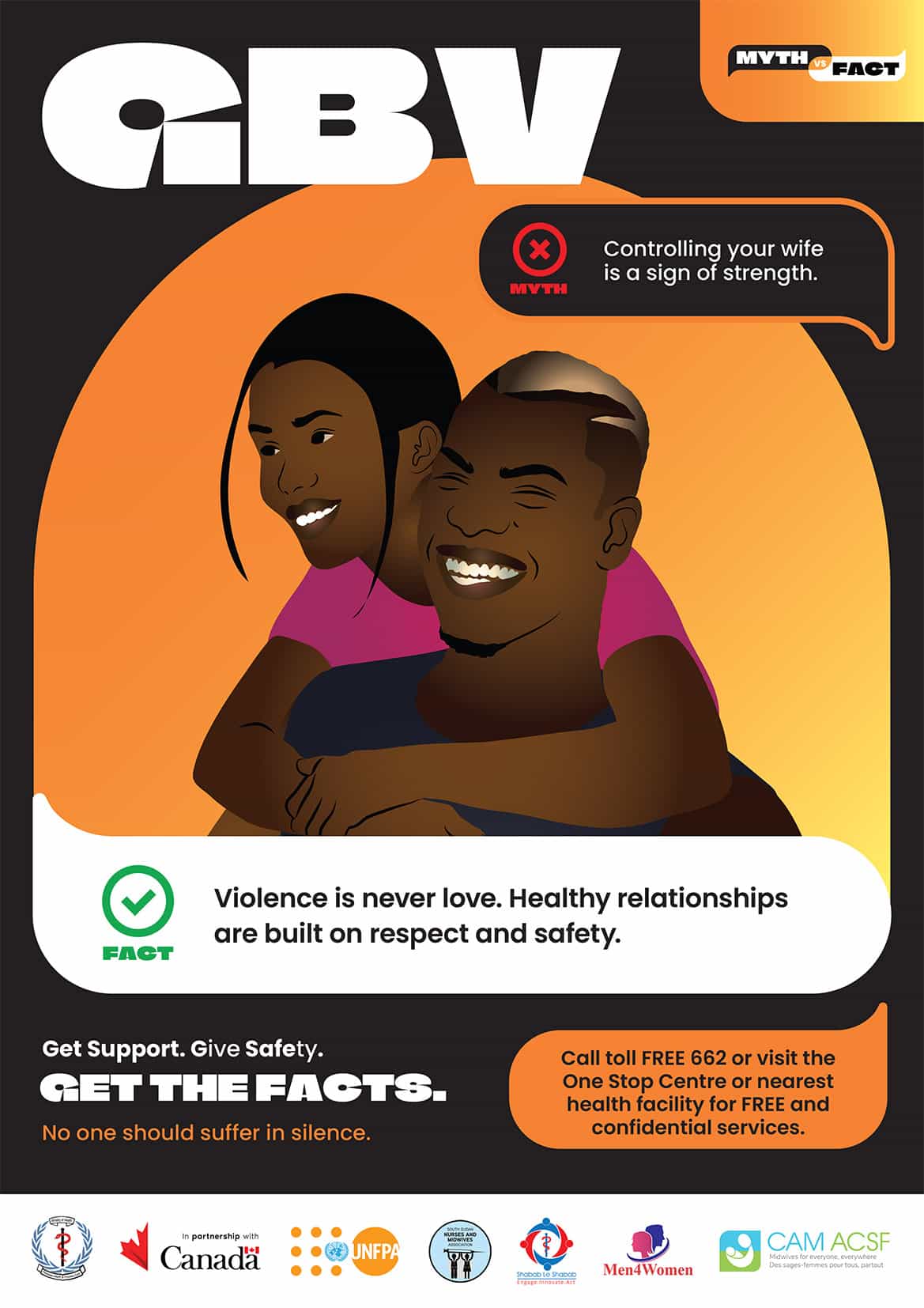
GLOBAL NEWS
In June, Kariane St Denis joined the Partnership for Economic Policy’s Annual Conference in Nairobi through the GAC-funded Learning and Knowledge Management Project. As part of the MEL Mentorship Program, she presented during the “MEL in Action” session, connecting with SMOs, researchers, and policy experts to strengthen impact evaluation and influence policy change.
ATENCIÓN SEGURA RESPETUOSA (Safe and Respectful Care in Venezuela)
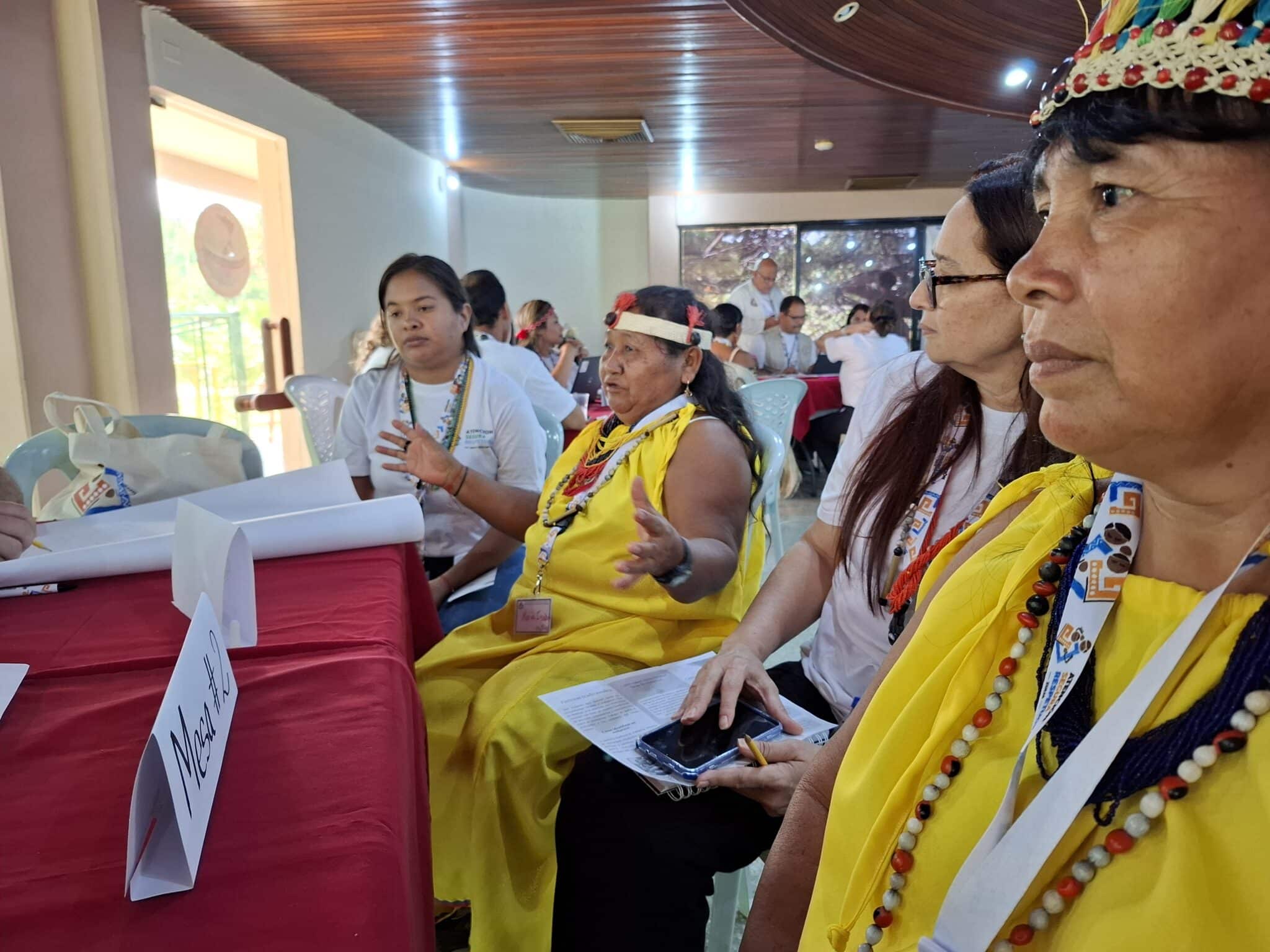
In a country facing ongoing economic and health system challenges, Venezuela’s rural and Indigenous communities often rely on traditional midwives for essential care. Despite their vital role, midwives’ knowledge remains undervalued and lacks legal protection.
First Meeting of Midwives in Venezuela
On August 22, 2025, the first National Meeting of Indigenous Midwives, “Interwoven Midwives, Weaving Threads of Hope,” was held at the Simón Bolívar Planetarium in Santa Cruz de Mara, Zulia. Forty-six participants attended, including traditional midwives from Amazonas, Apure, Bolívar, Delta Amacuro, and Zulia, alongside representatives from the University of Health Sciences, UNFPA, the Ministry of Popular Power for Health, the Canadian Association of Midwives, and SAOI.
Midwives stressed that traditional practices remain vital for women, girls, and pregnant people in rural and Indigenous areas, yet lack legal recognition and protection. The meeting aimed to increase visibility, strengthen networks, and advance proposals to defend their work through an intercultural, territorial, and spiritual lens. Sessions covered family planning, training new midwives, links with the health system, and legal advocacy. The event closed with ancestral music and dance, with outcomes including proposals for legal protection and a manifesto affirming midwives’ role in equitable health.
Attención Segura Respetuosa is funded by the Government of Canada through Global Affairs Canada (GAC) and led by UNFPA.
HR4-SRHR (Human Resources for Sexual and Reproductive Health & Rights in South Sudan)
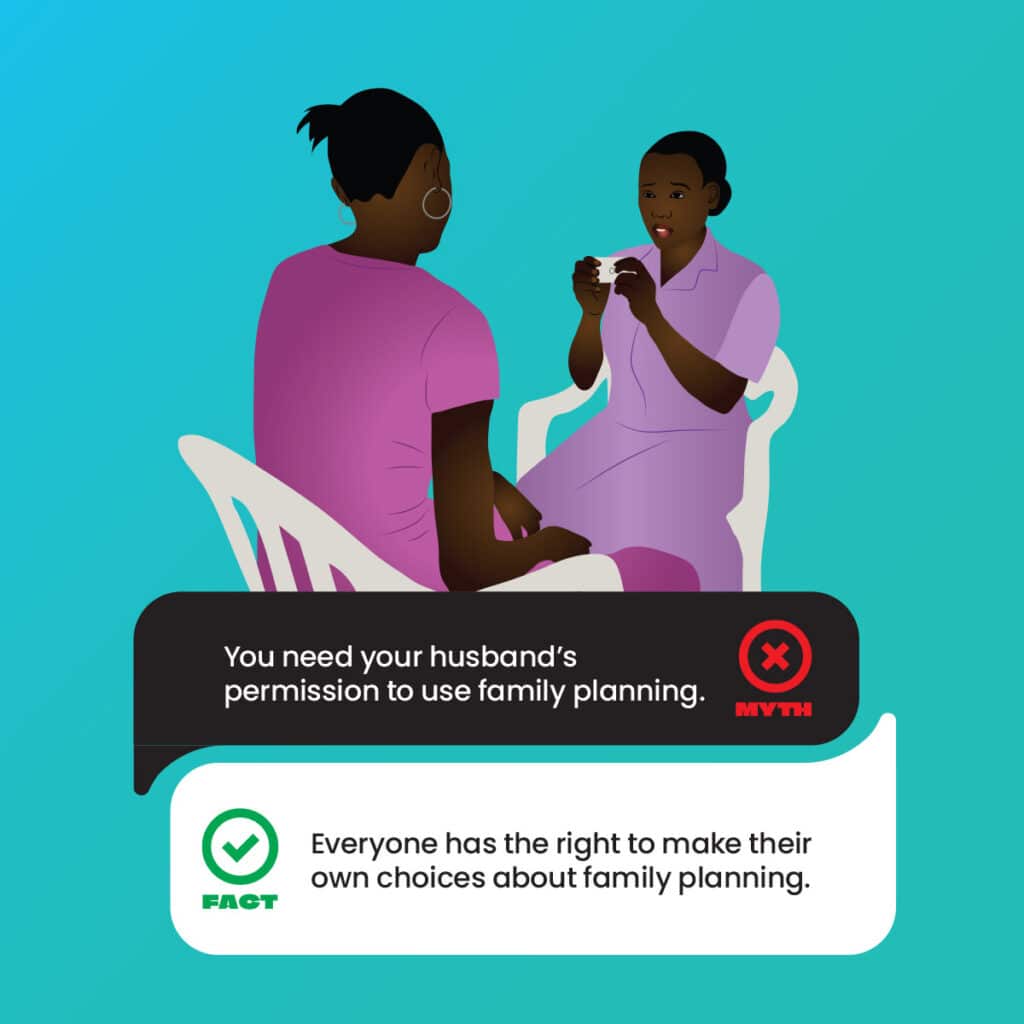
South Sudan teeters on the brink: but still, the resilience of midwives and youth workers continue to push forward against a backdrop of political instability and a deepening humanitarian crisis. Through the Global Affairs funded, UNFPA led, HR4 project, CAM and partners are advancing sexual and reproductive health and rights (SRHR) in South Sudan with a multi-pronged approach.
Five advocacy briefs and one-pagers featuring key messages from the Family Planning Handbook and Sexual and Behaviour Change (SBCC) Strategy were developed.
Through a series of meetings with implementing partners and in collaboration with the Ministry of Health, CAM developed the Get the Facts campaign highlighted by an interactive set of cards that deliver SRHR information in a dynamic, gamified format. More than 1,000 booklets will be distributed to young people in South Sudan to test the approach and gather feedback.
A series of Sustainability Workshops covering Resource Mobilization, Funding & Fundraising, and Communications, Advocacy and Public Engagement were hosted by CAM for Implementing Partners. Each session is designed to act as building blocks for the development of an actionable Sustainability Plan.
South–South learning exchanges are building the long-term capacity of SSNAMA and NAMCOSS, including progress on the Nursing and Midwifery Regulation Bill.
Youth engagement is thriving: Zone 72 Radio now reaches over 900,000 listeners weekly, with Facebook Live episodes nearly doubling last year’s engagement. May’s focus on obstetric fistula featured moving survivour stories which reached over 15,000 viewers on Facebook Live. Following the sexual assault of a young woman that was recorded and shared on social media, Zone 72 Team tackled the rising cases of gang violence, consent, and the impact on the mental health of young people in the country.
PASSREL ( Supporting Equal Sexual and Reproductive Health and Rights in Haiti)
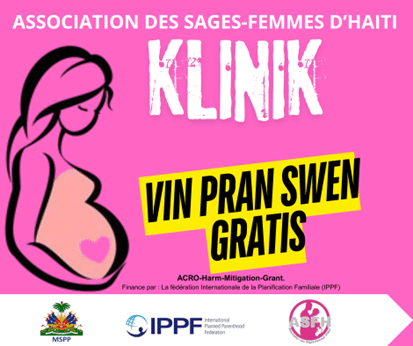
Amid escalating gang violence, mass displacement, famine, and widespread sexual violence (with over 1.5 million displaced and 1,500+ deaths this spring alone) Haitians face one of the gravest humanitarian crises on record. Still, midwives continue to risk their own safety to support women and families. The Supporting Equal Sexual and Reproductive Health (PASSREL) project is funded by Global Affairs Canada (GAC) and implemented by the Fondation Paul Gérin-Lajoie, the Canadian Association of Midwives (CAM), and the Society of Obstetricians and Gynaecologists of Canada (SOGC)
ASFH Launches New Sexual and Reproductive Health Clinic in Haiti
On June 12, 2025, the Association des Sages-Femmes d’Haïti (ASFH) will officially open its new Sexual and Reproductive Health Clinic in Delmas 33, Port-au-Prince. Staffed by qualified midwives, the clinic offers free services including family planning, prenatal and gynecological consultations, STI/HIV screening, cervical cancer screening, and youth health education and is designed to provide accessible, high-quality, and community-centered care.
This initiative is part of ASFH’s 2024–2027 strategic plan, which prioritizes accessibility, quality, and community engagement in sexual and reproductive health.
PROJECT SMIT Thamini Uzazi Salama (Value Safe Birth)
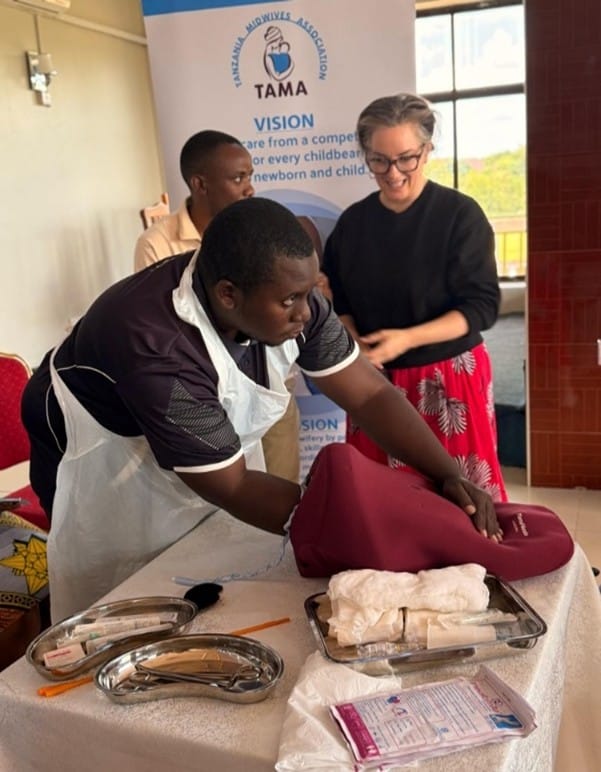
Tanzania works to strengthen its health system ahead of national elections, midwives remain central to maternal and newborn survival through training, innovation, and community-based care despite resource and infrastructure challenges. Project SMIT is funded by the Government of Canada through Global Affairs Canada (GAC) and led by UNFPA.
“MEST has given me the tools I need to save lives; I want to make sure that other midwives get the same opportunity to learn these critical skills”.
In February 2025, the Tanzania Midwives Association (TAMA), in partnership with the Canadian Association of Midwives (CAM) and Tanzania’s Ministry of Health, delivered a five-day Midwifery Emergency Skills Training (MEST) through the Thamini Uzazi Salama/Strengthening Midwifery in Tanzania (SMIT) project, funded by Global Affairs Canada.
A total of 180 midwives (57 male, 123 female) from Dar es Salaam and Shinyanga regions participated, representing 131 health facilities, including hospitals, health centres, and dispensaries. The training strengthened participants’ ability to recognize and respond to life-threatening complications during labour and childbirth, such as obstetric haemorrhage, eclampsia, and other emergencies.
By building confidence and competence in these critical skills, MEST is helping to ensure safer births for mothers and newborns and contributing to the reduction of maternal and neonatal mortality in Tanzania.
SMART RMC

“I learned that Respectful Maternity Care is a universal right. Every woman has the right to be treated with respect while carrying a pregnancy and giving birth… I spend more time with clients now because of RMC. It helps me connect with them.” Janet, midwife at Juba Teaching Hospital, South Sudan
In early 2025, CAM’s first fully led international initiative, SMART-RMC (Respectful Maternity Care), wrapped up after three years in the Democratic Republic of Congo and South Sudan. Funded by Global Affairs Canada, the project set out with a simple but powerful goal: every woman has the right to dignified, culturally safe, and compassionate care during pregnancy and childbirth.
The results were striking. In the DRC, the percentage of providers able to name three key elements of RMC jumped from 5% to 96%; in South Sudan, from 11% to 70%. Positive birth experiences soared—from 8.7% to 100% in the DRC and from 55% to 75.3% in South Sudan.
Across 40 facilities, midwife-led Quality Improvement teams tackled systemic barriers : adding privacy screens, securing blood pressure monitors, improving sanitation, and creating welcoming “baby corners.” In South Sudan, the Ask the Midwife radio program reached 16,400 listeners monthly, sparking open conversations on maternal health. In the DRC, mobile clinics and a midwifery theatre troupe brought services and rights education to over 2,000 women.
As Project Officer Kariane St-Denis notes, “These midwives showed incredible dedication and resilience… a true blueprint for rights-based, midwifery-led, sustainable change.”
SMILES (Somali Midwives for Improving Lives and Enhancing Sexual and Reproductive Health )
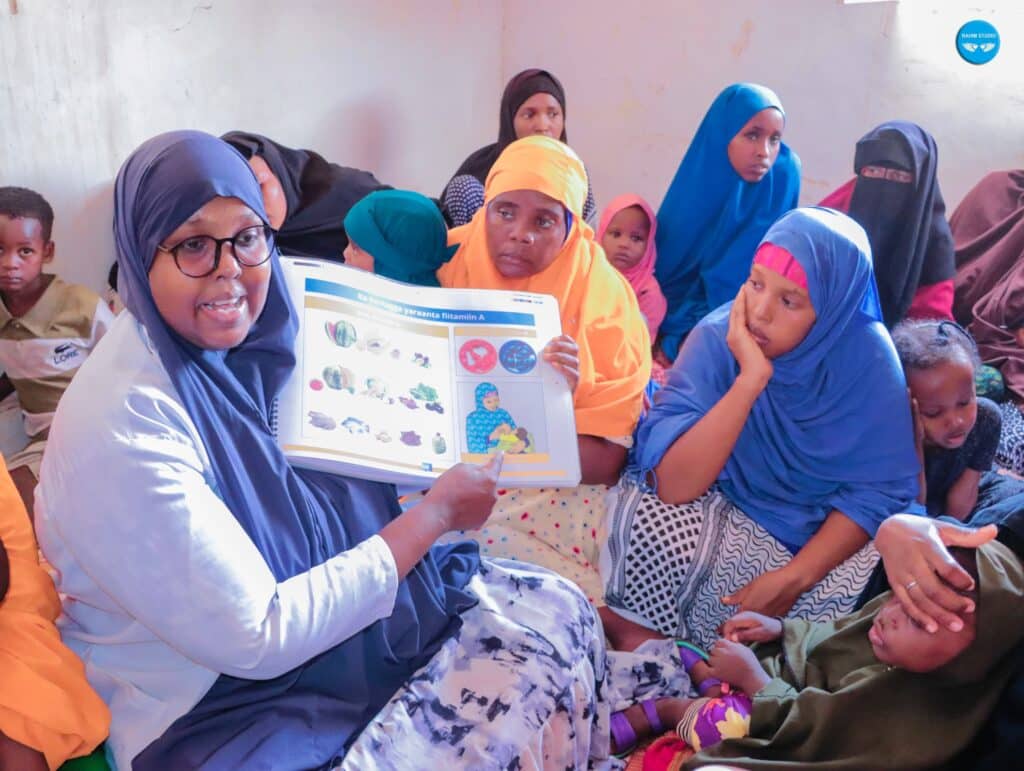
Amid ongoing security and humanitarian challenges, Somalia’s health sector is innovating. Midwives are expanding access to lifesaving, rights-based care for women and girls through training, system-strengthening, and community outreach.
The SMILES Project (Somali Midwives for Improving Lives and Enhancing Sexual and Reproductive Health), recently launched in Sprint 2025. SMILES is a five-year Global Affairs Canada–funded initiative led by CARE Canada in partnership with CARE Somalia, CAM, and the Somali midwifery associations SOMA, PAM, and SLNMA. Building on the success of SMEPS, SMILES will train midwives, strengthen midwifery schools and health facilities and expand SRHR services for over 335,000 people in Galgaduud, Lower Juba, Puntland and Somaliland, especially women, adolescent girls and underserved communities. Activities are expected to officially start in October.
“This project will have a big impact on our ability to deliver care to women in Somalia,” says Marian, a young midwife from Mogadishu.
Funded by Global Affairs Canada, SMILES is led by CARE Canada with the Canadian Association of Midwives as lead technical partner.
More information https://canadianmidwives.org/cam-global-announces-new-project/
(TRUST) Women’s Voices, Midwifery Leadership for Resilient Health
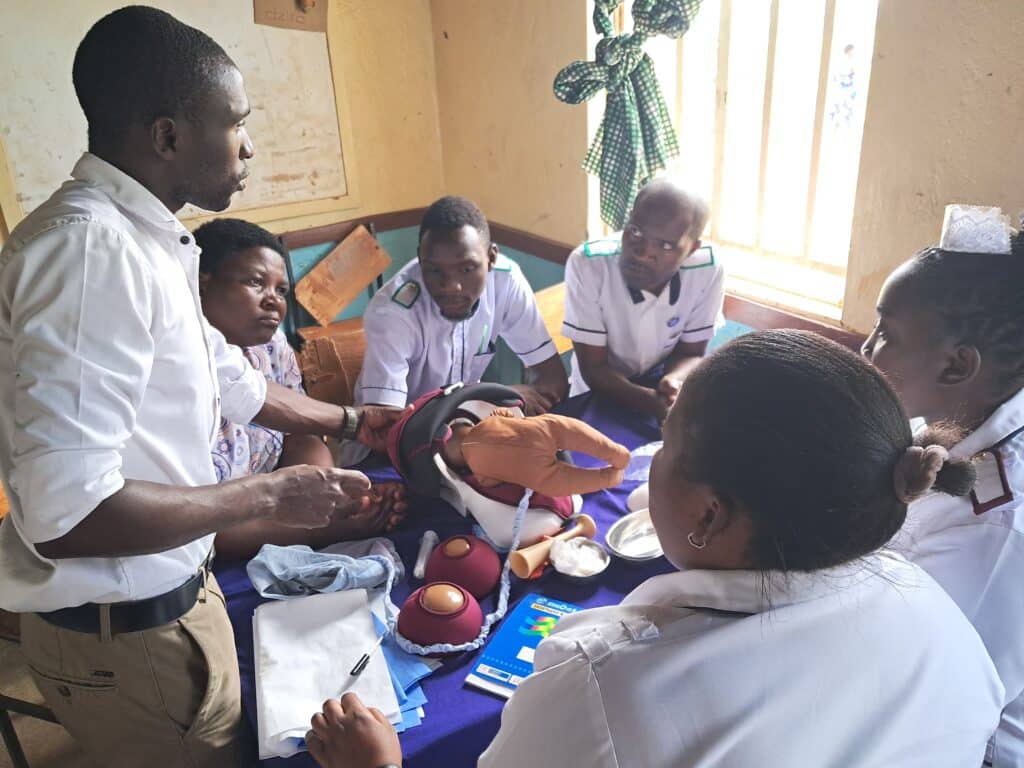
CAM Launches TRUST: Women’s Voices, Midwifery Leadership for Resilient Health
The Canadian Association of Midwives (CAM) has launched TRUST: Women’s Voices, Midwifery Leadership for Resilient Health, a CAM led, five-year, $8.5 million initiative funded by Global Affairs Canada to strengthen health systems and advance Sexual & Reproductive Health & Rights (SRHR) for women and girls in Malawi and South Sudan.
Working with local midwifery associations and international partners, TRUST puts women’s health organizations at the heart of systems change. The project will empower midwives as leaders, improve education and training, and promote inclusive, rights-based, climate-justice advocacy, ensuring that even the most marginalized communities can access quality care.
The stakes are high: Malawi and South Sudan face some of the world’s highest maternal and neonatal mortality rates, compounded by gender inequality, climate change, and limited access to skilled health professionals. TRUST directly addresses these challenges with an objective of training more than 650 midwives, improving care for over 108,000 pregnant women annually, and reaching up to 1.5 million community members through outreach and advocacy.
Early milestones over the Spring of 2025 include:
- In-country engagement with partners and stakeholders in Malawi.
- A five-day Project Implementation Plan workshop in Ethiopia with all implementing partners.
- A cross-border exchange with the Ethiopian Midwives Association to share best practices in midwifery leadership and education.
By placing midwives’ voices at the centre of health reform, TRUST is building resilient systems capable of delivering equitable, high-quality SRHR services, and transforming the future of care for women and girls.
For more information about TRUST



